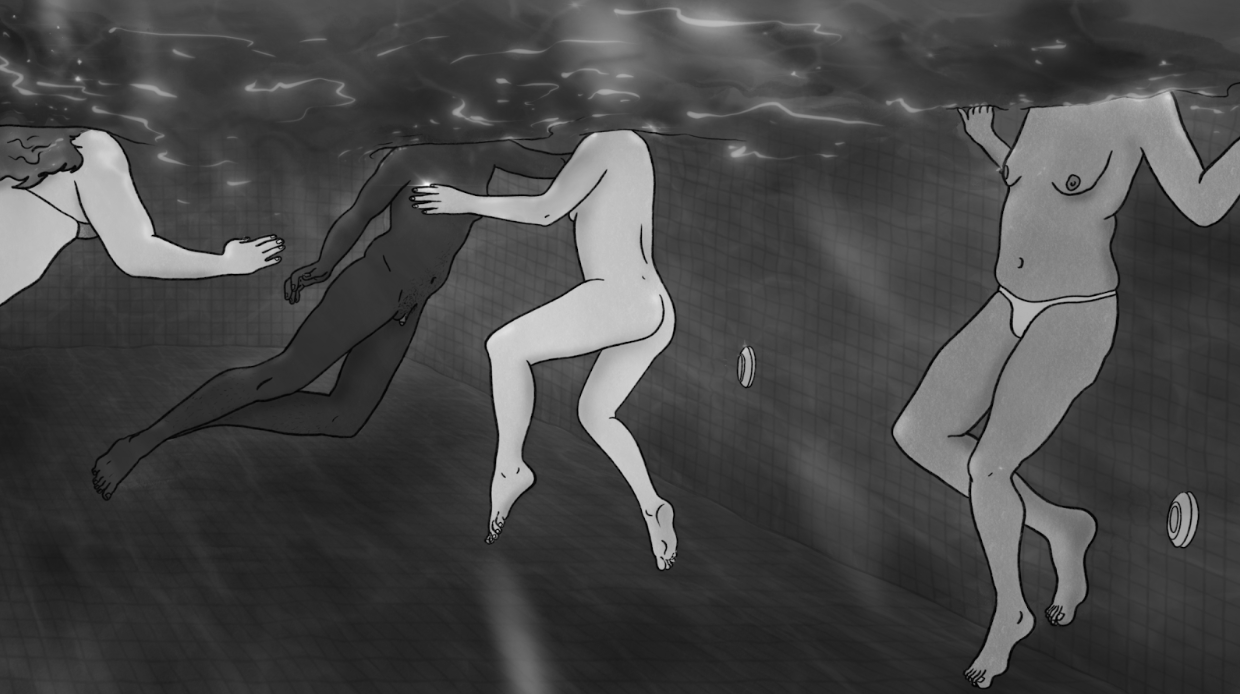This presentation will showcase two aspects of the Pussy Palace Oral History Project: our “queering” of oral history interviewing strategies with our focus on sense memories, and our experiments with digital research creation (audiograms, video shorts, Instagram stories) as a strategy in reaching broader audiences with our oral history work.
About this event
The Pussy Palace was a series of radical public sex events for queer women and trans people in Toronto, Canada (c. 1998-2014). On September 15, 2000, five male police officers interrupted over 350 patrons in what became the last major police raid of a queer bathhouse in Canadian history. The LGBTQ Oral History Digital Collaboratory at the University of Toronto has collected 36 interviews with bathhouse patrons, event organizers, and community activists. Interviews address not only the raid, but also queer joy and radical sex/gender cultures in turn-of-the-21st-century Toronto.
To understand narrators’ affective engagement with the past, we developed a new approach to the oral history interview that involves guiding the narrator in a sense memory exercise. The material that emerged from this collaboration has been a series of “sensory portraits”—animated video shorts that spotlight our narrators’ sense memories of the Palace.
This presentation will showcase two aspects of the Pussy Palace Oral History Project: our “queering” of oral history interviewing strategies with our focus on sense memories, and our experiments with digital research creation (audiograms, video shorts, Instagram stories) as a strategy in reaching broader audiences with our oral history work.
Elspeth H. Brown is Professor of History at the University of Toronto, where her research concerns modern queer and trans history; oral history; queer archives; public history; the history and theory of photography; and the history of US capitalism. She is also currently the Associate VP Research, University of Toronto Mississauga, and the Director for the University of Toronto’s Critical Digital Humanities Initiative. Since 2014 she has been Director of the LGBTQ Oral History Digital Collaboratory, a multi-year digital history and oral history public, digital humanities collaboration. She is the author of numerous books, articles, and public humanities projects, including “Trans Oral History as Trans Care” (with Myrl Beam, Oral History Review 2022) and “Archival Activism, Symbolic Annihilation, and the LGBTQ+ Community Archive” (Archivaria 2020). Book-length studies include Work! A Queer History of Modeling (Duke University Press, 2019); Feeling Photography (Duke, 2014, co-editor with Thy Phu); The Corporate Eye: Photography and the Rationalization of American Commercial Culture, 1884-1929 (Johns Hopkins, 2005). From 2014-2021, she served on the Board of The ArQuives: Canada’s LGBQT2+ Archive, most recently as Co-President.
Alisha Stranges is a queer, community-based, public humanities scholar and multi-modal artist. She holds an M.A. in Women & Gender Studies from the University of Toronto, with a collaborative specialization in Sexual Diversity Studies (2020). After joining the Collaboratory in 2021 as the Project Manager and Co-Oral Historian for thePussy Palace Oral History Project, she transitioned to the role of Research Manager, supporting Director Elspeth Brown in the planning, development, and execution of concurrent projects. Before entering the academy, she received a Diploma in Theatre Performance from Humber College and spent a decade devising original plays within Toronto’s queer, independent theatre community. From 2010 to 2015, she returned annually to Buddies in Bad Times Theatre as a teaching-artist and co-facilitator for PrideCab, an intensive training program in collective creation & performance for queer, trans, and gender variant youth. In 2019, she launched theQu(e)erying Religion anti-Archive Project, which blends elements of oral history with the art of whiteboard animation to document 10+ years of supportive programming for life-giving, queer spirituality at UofT.

